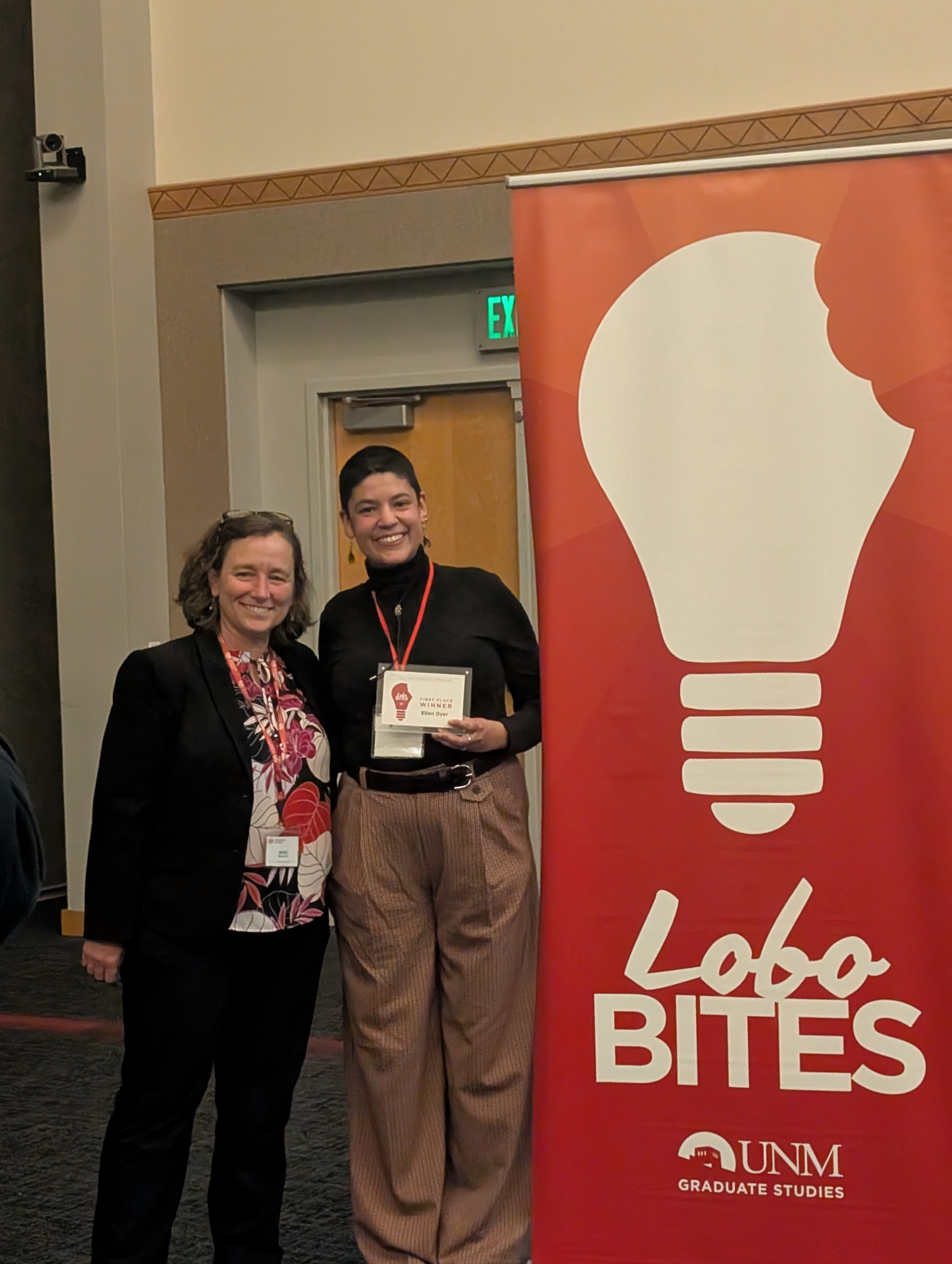Ellen Dyer Awarded the Grand Prize in UNM Grad Studies' LoboBITES 3min Thesis Competition
Departmental News
Posted: Nov 18, 2024 - 12:00pm

Ellen Dyer, Evolutionary Anthropology Doctoral Student, was awarded the grand prize in UNM Grad Studies' LoboBITES 3min Thesis Competition for her thesis Sex-Specific Effects of Affiliative Bonds on Cortisol in Wild Chimpanzees in Kibale National Park, Uganda.
Abstract
Social bonds have often been linked to lower mortality and enhanced fitness in primates, including humans. Among primates, these relationships have primarily been studied in female-bonded species, where bonds with kin serve a particular role in feeding competition. Due to its frequent links with negative health outcomes, chronic glucocorticoid exposure has been proposed as an important mechanism mediating the relationship between sociality and health. Social bonds may reduce exposure to stressors or provide a buffering effect against stressful experiences. We tested the hypothesis that bond strength reduces urinary cortisol levels in a 22-year study of wild chimpanzees from the Kanyawara community in Kibale National Park, Uganda. We defined social bonds using three measures – party association, proximity, and grooming – for each same-sex adult dyad. We applied linear mixed models to assess variation in 20,909 urinary cortisol concentrations collected from 49 chimpanzees. Stronger affiliative bonds were associated with reduced cortisol production in adult female chimpanzees (b=-0.10, p=0.01) but higher cortisol in adult males (b=0.34, p=<0.001). The effect of bond strength in promoting physiological stress in males remained even when considering variation in contextual stressors, such as dominance rank and rate of aggression. In this strongly male-bonded species, male bonds are associated with increased physiological costs, on average. Despite being less strong, female bonds appear to be more beneficial. Our results provide an important counterpoint to evidence for beneficial effects of social bonds and suggest that the health benefits of bonds may vary with their function.
Ellen Dyer (1), Megan Cole (1), Stephanie Fox (1,2), Maggy Kobusingye (3), Martin Muller (1), Emily Otali (3), Richard Wrangham (4), Zarin Machanda (5), and Melissa Emery Thompson (1)
(1) Department of Anthropology, University of New Mexico
(2) Department of Anthropology, University of California at Santa Barbara
(3) Kibale Chimpanzee Project
(4) Department of Human Evolutionary Biology, Harvard University
(5) Department of Anthropology, Tufts University
